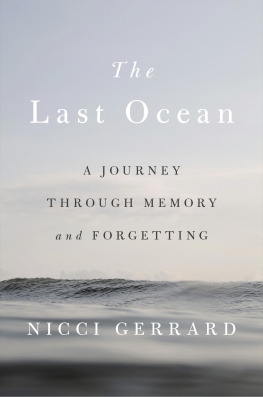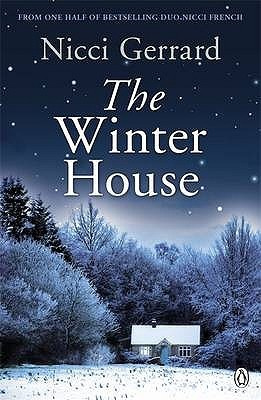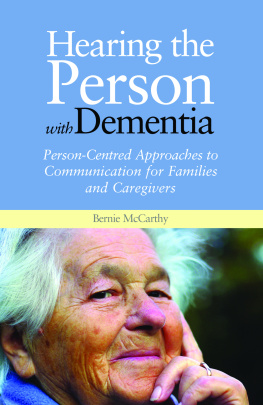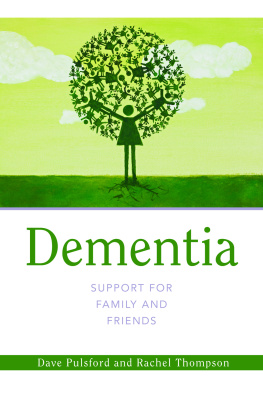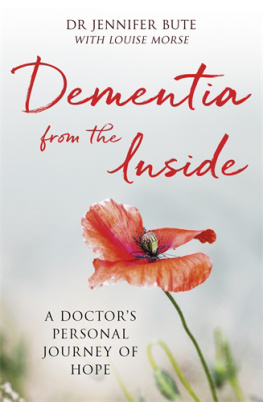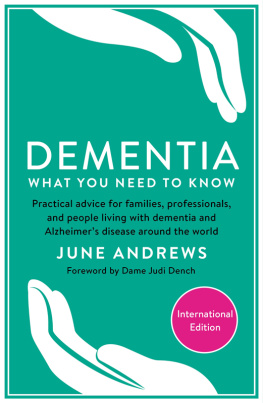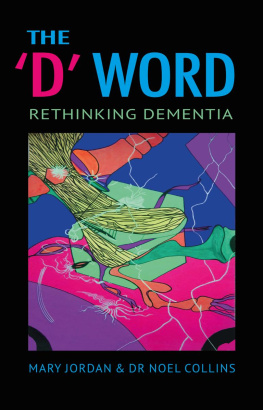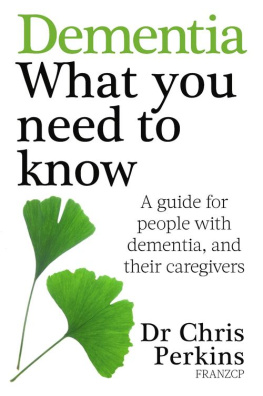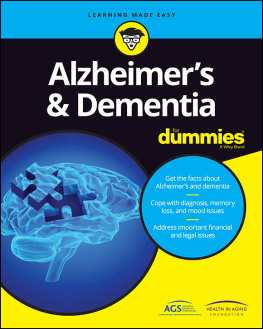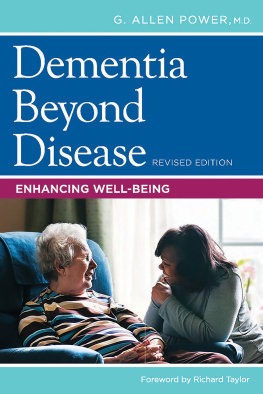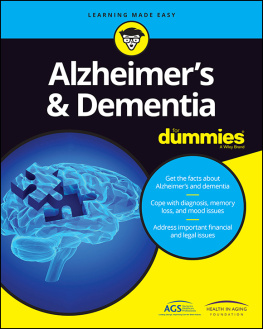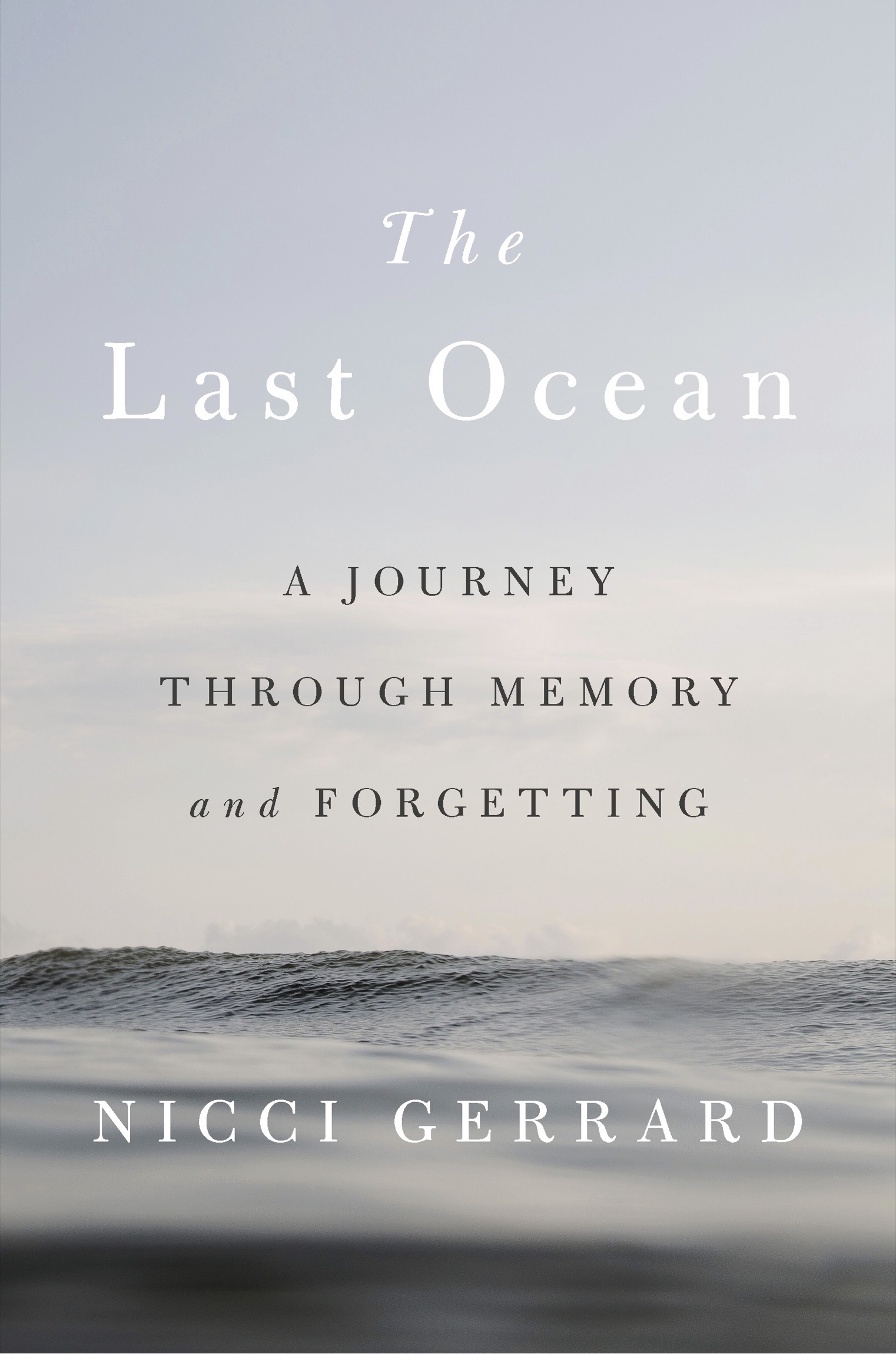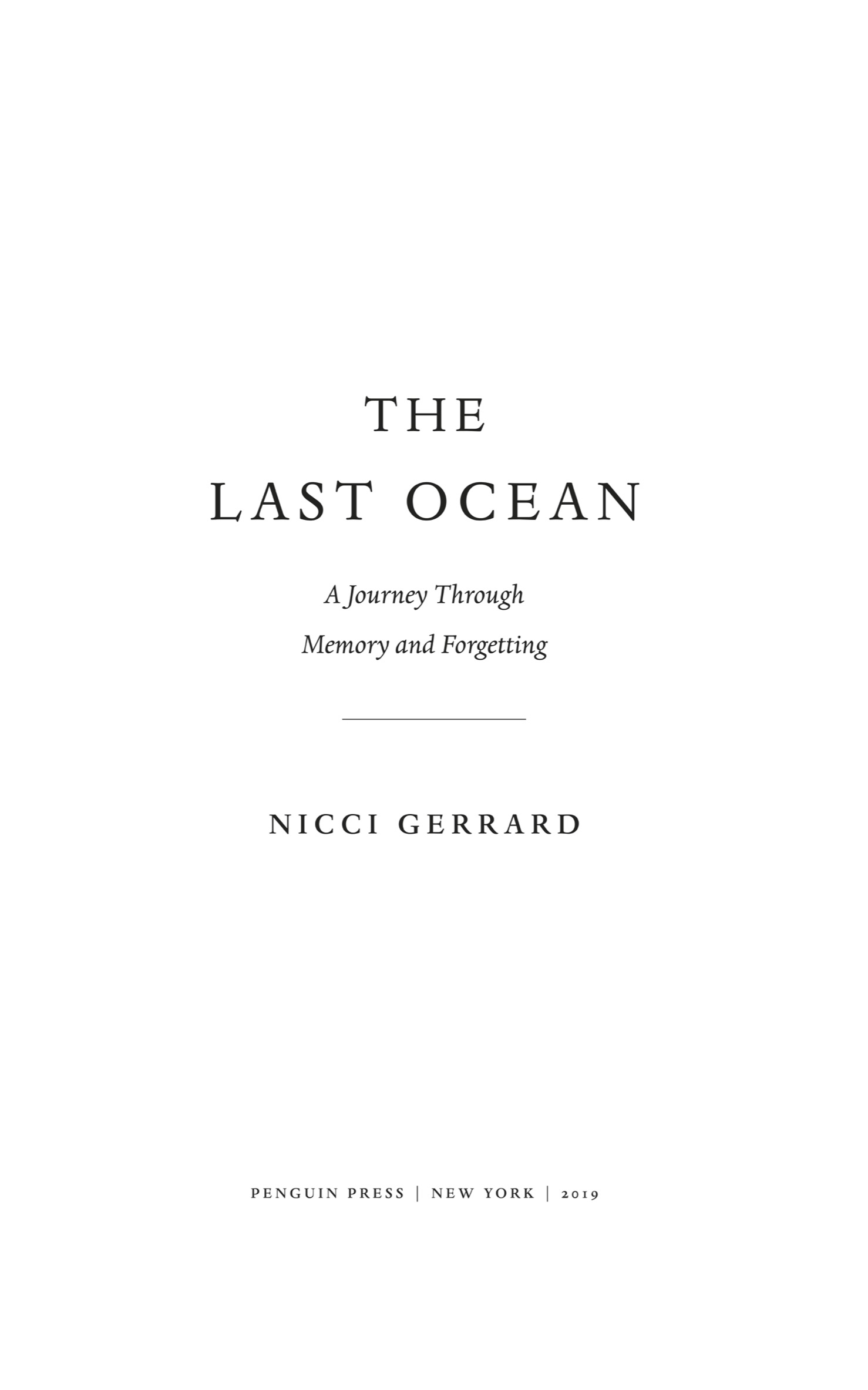Penguin supports copyright. Copyright fuels creativity, encourages diverse voices, promotes free speech, and creates a vibrant culture. Thank you for buying an authorized edition of this book and for complying with copyright laws by not reproducing, scanning, or distributing any part of it in any form without permission. You are supporting writers and allowing Penguin to continue to publish books for every reader.
BEGINNINGS
O the mind, mind has mountains; cliffs of fall
Frightful, sheer, no-man-fathomed...
The year before my father died, he came with us to Sweden for the summer. He had been living with his dementia for over ten years by then, and mildly, sweetly, uncomplainingly he was gradually disappearing, memories falling away, words going, recognition fading, in the great unravelling. But he was very happy on that holiday. He was a man who had a deep love for the natural world and felt at home in it; he knew the names of English birds and insects, wildflowers and trees. When I was a child, I remember him taking me to listen to the dawn chorus in the woods near our house. Standing under the canopy of trees in the bright wash of sound, he would tell me which song was the mistle thrush and which the blackbird. At least, I think I remember this, but perhaps I make it up as a story to tell myself when Im sad.
In Sweden, he picked wild mushrooms in the forest, went to a joyful crayfish party where he drank aquavit and wore a garland in his white hair, sat with a palette of watercolours looking out at the meadow although his paintbrush never quite made it to the paper. And one evening, we took him to have a sauna he loved saunas because they reminded him of the time he had spent in Finland as a carefree young man. Afterwards, we helped him into the lake. It was a beautiful, soft dusk; in the fugitive light, the trees were massed shapes and there was a moon shining on the water. I remember the stillness, just the occasional lap of water against the jetty.
My father, old and frail, swam out a few yards and then he started to sing. It was a song Id never heard before, have never heard since. He was swimming in small circles and singing to himself. He seemed quite contented, happy even, but at the same time it was the loneliest sight: as if there was no one left in the world, just him in the half-darkness and brimming silence, with the lake and the trees and the moon and scattered stars.
The edges of the self are soft; the boundaries of the self are thin and porous. In that moment, I could believe that my father and the world were one; it was pouring into him, and he was emptying out into it. His self bashed about by the years, picked apart by his dementia was, in this moment of kindness, beyond language, consciousness and fear, lost and contained in the multiplicity of things and at home in the vast wonder of life.
Or that is what I tell myself now, three years later, trying to make sense of an illness that has the power to dismantle the self, that comes like a robber in the night to sneak into a house built up over a lifetime, to wreck and plunder and despoil it, sniggering behind the broken doors. The following February my father went into hospital with leg ulcers that were slow to heal. There were strict visiting hours and then, with an outbreak of norovirus, a virtual lockdown of the ward, which meant that for days on end he was alone: nobody to hold his hand, speak his name, tell him he was loved; nobody to keep him tethered to the world. His leg ulcers were healed, but away from the home he loved, stripped of familiar routines and surrounded by strangers and machines, he swiftly lost his bearings and his fragile hold upon his self. There is a great chasm between care and care, and my father fell into it.
When he at last came home, he was a ghost of himself, skeletal, immobile, inarticulate and lost. No more saunas for him, no more forests and lakes and flowers in his hair; he wasnt in the twilight of the illness now but in its gathering dark. After several months of radically slowed-down dying, as autumn turned to winter and with a hard cold wind blowing, he left us at last. But against the memories of his terrible last months the small room downstairs where he lay in a hospital bed waiting and waiting for nothing while the birds he loved came to the bird table outside his window; the routine of washing, feeding, lifting; the nurses and doctors and carers and the whole bureaucracy of illness and death; the sense of a mind dying and a body crumbling and not a damn thing to be done about it against this stifling, drawn-out ending, I set the memory of my father in a Swedish lake, in peace, in soft dusk and that mysterious fusion of the self with the world.
I used to say that we are made of our memories, but what happens when memories are lost? Who are we then? If we are out of our mind, where have we gone? If we have lost the plot, what happens to the story we are in? Even at the bitter end, I never thought my father wasnt himself although at the same time I felt he had lost himself. He was gone but he remained; he was absent and yet powerfully present. There was something that endured beyond language and recollection, a trace perhaps, like grooves that life had worn into him the way a river carves into rock. He still had his sweetness; his past lived on in his smile, his frown, the way he raised his bushy silver eyebrows. It lived on in us. He might not have recognized us, but we could recognize him. I dont know what the word for this indelible essence is once, it would have been soul.
Civilization, control and safety form a crust over deep waters. In all of us, often pushed into the corner of our minds, is the uneasy awareness of how frail our hold over ourselves is, how precarious a grip we have on our own minds and bodies. Dementia all the many and often harrowing forms of dementia makes us ask what is it to be a self, to be human.
It is often called the plague of our time; it is the disease of the century.
In 2015, an estimated 850,000 people in the UK were living with a form of dementia; the same number was thought to be undiagnosed. As the population ages, it is estimated this figure will increase to over 1 million by 2021 and 2 million by 2051. In the US, the estimate in 2017 was 5.5 million people. According to the World Health Organization, there are around 47 million people living with dementia in the world. Someone develops dementia every three seconds.

